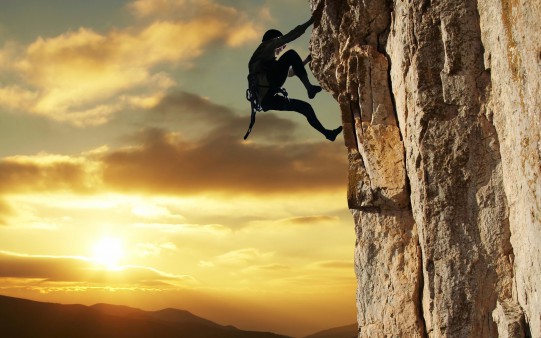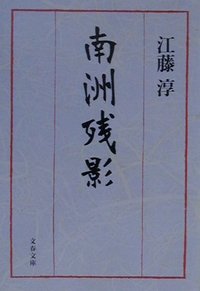In the second interview of this new year, we will interview someone who was recommended to us by Professor Kenichiro Itami (interview #2): Professor Motomu Kanai from the Graduate School of Pharmaceutical Sciences at The University of Tokyo, who has led his independent research group since last year (note added for translated version: since 2010). He has already developed many useful asymmetric catalytic reactions and has applied them to bioactive compounds. Reading the interview title, “from catalysts to life,” and judging from the research direction of the Kanai laboratory, I believe that he will continue to carry out chemistry research with very ambitious goals in mind. Please read on!
[su_dropcap size=”2″]Q[/su_dropcap] What made you choose chemistry as a career?
[su_dropcap size=”2″]A[/su_dropcap]
It was in my freshman year in university that I decided to go into some form of research for my career. I was in the mountain climbing club during junior and senior high school, but my passion did not stop during my university years. On one hike between Yari-ga-take (Mount Yari) and Tsubakuro-dake (Mount Tsubakuro) in the Japanese Alps, I remember seeing a vertical draft looking like an aviaticus cloud (airplane contrails) coming out of a large rock that was sticking out of the mountain range—this made me realize how beautiful nature is, and so I wanted to study natural sciences. This might be an awfully simple start to my career in science, but since I was young and perceptive, I remember being very inspired by this event. Later on, I wanted to do research related to human life but I didn’t have the brains to carry me to medical school, so I chose pharmacy.
In my senior (4th) year of university, when I was assigned to a research laboratory, I lost out in a lottery and I had to go to Professor Koga’s pharmaceutical synthesis laboratory… that’s how I entered the world of chemistry. Until then, I had not taken chemistry seriously at all and had skipped most of my classes, so I remember being quite nervous. I don’t think I knew who Professor Koga was before joining his laboratory… However, I was gradually drawn into the Koga group’s lively research style and here I am now… a chemist. Right now, I can say that I was lucky to have lost in that lottery pick!
[su_dropcap size=”2″]Q[/su_dropcap]
If you were not a chemist, what would you like to be, and why?
[su_dropcap size=”2″]A[/su_dropcap]
In my university years, it was the midst of the economic bubble in Japan, so I wanted to go into mass communication. Specifically, I wanted to join “NHK Creative Library” (NHK: Nippon Hōsō Kyōkai, Japan’s national public broadcasting corporation) and show the audience how beautiful nature is through breathtaking images. The main incentive was because I would be able to use my job as an excuse to climb mountains and go to jungles. I am still enamored by adventurers who do “survival climbing,” in which they hunt wild rabbits or deer to survive while trying to reach the summit. I also love the feeling of being surrounded by snow. But I guess I can’t make a living this way!
[su_dropcap size=”2″]Q[/su_dropcap]
Currently, what kind of research are you conducting? Moreover, how do you foresee its future development?
[su_dropcap size=”2″]A[/su_dropcap]
This is a tough question! I haven’t achieved this at all yet, but I dream about making structurally complex molecules that have special functions in living systems (and making them with ease), spearheading the development of medicines that can save lives by designing and synthesizing molecules, and realizing a new paradigm in the treatment of disease. I want to provide ideas that lead to the generation of drugs in order to allow one to not part with loved ones and to save people suffering from disease. To achieve this, I know that I would need to collaborate with many people in many different fields of science. I really hope that I can stick to these principles even 25 years from now. Maybe you could interview me again in 15 years?
[su_dropcap size=”2″]Q[/su_dropcap]
If you could have dinner with any famous person from the past, who would it be, and why?
[su_dropcap size=”2″]A[/su_dropcap]
Most people who have led relatively decent lives have had various life experiences, so whenever I have time, I like to sit down and have a lengthy dinner full of conversation with anybody. In terms of historical figures, I would choose Alexander the Great, Genghis Khan, Julius Caesar, and Emperor Taizong of Tang Dynasty. These are people who broke down old paradigms, kept an endless conquering spirit but also established new order across the land. I wouldn’t want to talk to him if he’s in a bad mood, but I would also like to hear stories from Nobunaga Oda. I would like to be mentored by Zhuge Liang, as I like his imagination full of freedom. My last pick is not a historical person, but Ringo Sheena (Japanese singer/songwriter). I was rather impressed since her debut, but she is still full of energy and talent after 10 years. She must be putting in a lot of effort! [amazonjs asin=”B004MYOZRY” locale=”US” title=”Sanmon Gossip”]
[su_dropcap size=”2″]Q[/su_dropcap]
When was the last time you performed an experiment in the laboratory, and what was it about?
[su_dropcap size=”2″]A[/su_dropcap]
That was December 29, 2009. I faintly remember mixing phenylalanine and something else in water, but I don’t fully recall what I did. One of my students had left about 5 reactions stirring “over the New Year” and that gave me an uncontrollable urge to mix things. However, as expected, I just took a TLC and I did not work up the reaction. But I do have the intent to return to the fumehood in a few years, and I am quite confident that I would do so!
[su_dropcap size=”2″]Q[/su_dropcap]
If you were stranded on a desert island, which book or song/piece of music would you like to have with you? Please single out your favorite example.
[su_dropcap size=”2″]A[/su_dropcap]
Just one? That’s quite difficult. As for books, it would be “Nanshūzan’ei” by Jun Etō. This book portrays the thoughts of Takamori Saigō (one of the last samurais of the Edo period) early in the Meiji era (1870s), who already predicts the fall of the Japanese people (i.e., eventually, during World War II). This book re-examines the core values of Japanese citizens. I also appreciate the poetic aspects of the book. As for music, I like the 2nd album by Queen. It is grand, yet beautiful and full of energy. I think it’s an album describing the best of Queen’s talents.
[amazonjs asin=”B004UUKDWG” locale=”US” title=”Queen II”]
[su_dropcap size=”2″]Q[/su_dropcap] Do you have any suggestions as to whom we should interview next?
[su_dropcap size=”2″]A[/su_dropcap]
Professors Hisashi Yamamoto, Shinji Murai, Eiichi Nakamura: in many ways, they work on chemistry on a large scale. Professor Tohru Fukuyama: he’s very funny but actually very scary. As for professors that are closer to me in terms of age, Professors Hiroshi Imahori, Michinori Suginome and Masaharu Nakamura from Kyoto University, Professors Takashi Ooi, Shigehiro Yamaguchi and Hiroshi Shinokubo from Nagoya University, Professor Seiji Ogo from Kyushu University, Professor Masahiro Terada from Tohoku University, Professor Makoto Fujita from the Graduate School of Engineering at The University of Tokyo, Professors Shū Kobayashi and Mitsuhiko Shionoya from the Graduate School of Science at The University of Tokyo, and Professor Masayuki Inoue from our department (Graduate School of Pharmaceutical Sciences at The University of Tokyo). I’m sure you (writing to Prof. Junichiro Yamaguchi) know more professors in Nagoya or Kyoto, but since there are many talented professors and it might be difficult to conduct these interviews without explicit suggestions, I decided to list many professors. [su_box title=”Biographical sketch of Motomu Kanai:”]After graduating from the Faculty of Pharmaceutical Sciences at The University of Tokyo in 1989, he continued onto his Masters and doctoral programs (mentored by Professor Kenji Koga), but he discontinued his studies in 1992 to be an Assistant at The Institute of Scientific and Industrial Research in Osaka University (mentored by Professor Kiyoshi Tomioka). In 1995, he obtained his Ph.D. and, after gaining postdoctoral experience at the University of Wisconsin—Madison (mentored by Professor Laura Kiessling), he returned to the Graduate School of Pharmaceutical Sciences at The University of Tokyo in 1997 to become an Assistant (mentored by Professor Masakatsu Shibasaki), followed by an Assistant Professorship in 2003 (also mentored by Professor Masakatsu Shibasaki), and finally Professorship in 2010 (independent career). He has obtained The Pharmaceutical Society of Japan Award for Young Scientists in 2001, the Merck-Banyu Lectureship Award in 2005, among others. [/su_box] Japanese version written here on Jan 11, 2011 ; English translation written on July 4, 2014.






